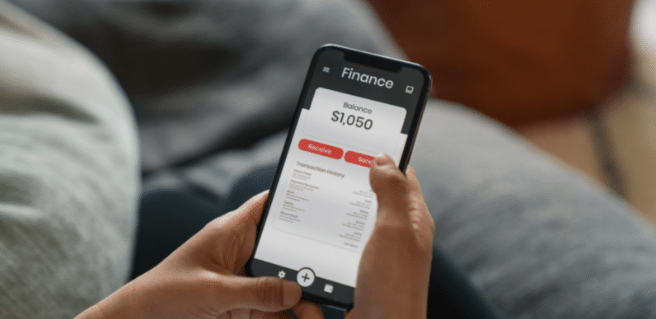In our tech-savvy society, it’s easy to get lost in all the financial planning apps and tools at our disposal. There are a multitude of apps to help people track eating and fitness as well as other things. Smartphones are convenient tools to monitor bank accounts and credit card payments, so it’s not surprising that apps exist designed to help users invest, save and plan. Popular financial planning features include monitoring bank balances, spending trackers and financial goal milestones.
According to Forbes Advisor, three in four Americans (roughly 76%) trust their smartphones for online banking. Depending on digital banking became a necessity during the pandemic when many bank branches closed their doors and stay-at-home orders were in place.
Finance experts and NerdWallet compiled lists of effective financial planning apps. Financial apps help users reach their goals and responsibly plan.
Mint
The finance planning app Mint is a free platform developed by Intuit, the well-known company that created Turbo Tax. The app links all your financial accounts in one place to summarize your financial standing. It determines this by collecting data from spending habits and alerts you when a bill is due or when your budget is overextended. The app also keeps track of any suspicious activity and is perfect for monitoring credit and budgeting.
LearnVest
Another great free platform, LearnVest gives users the option of linking their bank account or manually inputting data month by month. The app creates a financial plan after reviewing monthly expenses to help you stay on budget and meet your goals. This is the perfect app for those wishing to keep bank information private.
You Need A Budget (YNAB)
If you struggle with keeping to a budget or saving in general, You Need A Budget (YNAB) is a great tool to use. It allows users to customize categories, giving ample freedom to create a custom financial plan. When you overspend, the app penalizes you by minimizing the amount of money in the affected area. Learn financial responsibility and familiarize yourself with budgeting by using YNAB. This paid app requires a $60 upfront fee.
Acorn
This app uniquely approaches saving and investing by allowing users to invest spare change in a diversified stock portfolio. Every purchase made using Acorn is rounded to the next dollar and invested in various funds based on preferences. Most frequent credit card users love this app! It is user-friendly and if a user saves $5 every few days, this represents an annual investment of $1,000. This app is ideal for first-time investors.
PocketGuard
Another great free resource, PocketGuard divvies up your income to give an everyday spending balance by tracking recurring bills, income and pre-budgeted money. Compiling checking, credit and savings accounts onto one platform makes everything as easy as possible. Users have the freedom to create customized categories and fully personalize their savings plans.
EveryDollar
Fans of zero-based budgeting, a type of system where income exactly equals expenses, will love EveryDollar. A service created by finance expert Dave Ramsey, EveryDollar has a free version that manually tracks income and expenses. For an additional $129.99 after a 14-day trial, Ramsey+ connects to your bank accounts to cut out the middleman and allow access to manage your budget.
GoodBudget
Old-school users who prefer the envelope method should use Goodbudget. The app encourages users to allocate their budgets into specific categories. Multiple devices can connect to the app to give users easy access with optional syncing to financial accounts. Manually adding account balances, cash flow along with debts gives peace of mind and keeps your finances secure. The free version allows one account on two devices with a limited number of envelopes. If you choose to pay for the Plus version, $7 per month or $60 annually accesses unlimited envelopes, five devices and more.
Honeydue
If you’re tracking finances with a partner, Honeydue is the ideal route. A relatively new app, this platform allows users to see personal financial portfolio information along with a partner in one place. Information from bank accounts, investments, credit cards and more are available. There is an option to keep certain expenses private. Users can customize categories, set reminders for upcoming bills and receive reminders when monthly limits are approaching.
Personal Capital
This last option is a great free resource to track spending and saving. As well as tracking checking and savings accounts, Personal Capital allows users to keep track of loans, IRAs and 401(k)s for a unique and amplified experience. The big picture of your financial portfolio gives users all the information needed to successfully save and plan for upcoming events, future goals and more. Users can customize categories and see the percentages each section represents.
To read more about what experts are saying at Equifax and NerdWallet about financial planning, visit the Equifax Finance Blog and www.nerdwallet.com.
